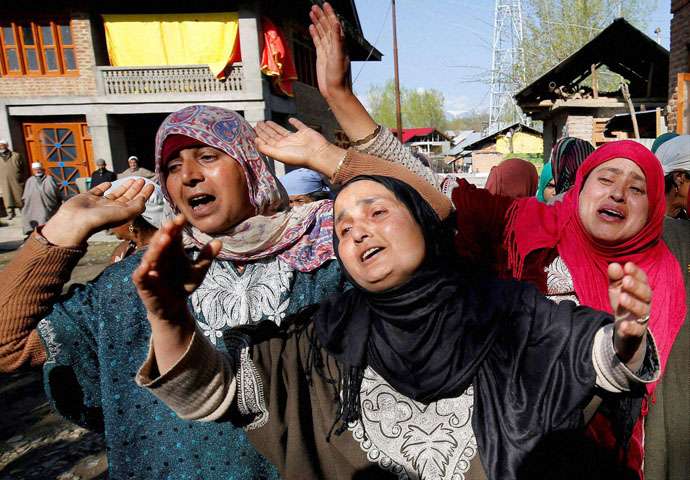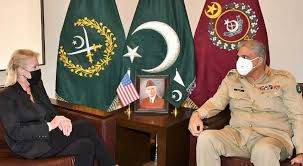
Image courtesy of medium.com
Identity Complex And Insidious Cultural Imperialism - Aditya Chaturvedi
When we refer to identity complex or identity crisis, it is mostly used to denote diaspora alienation, cultural deracination or trading one's original social/ cultural/ linguistic identity for a different identity – assumed to be more superior and puritanical – either voluntarily or under duress or as a result of centuries of intermingling or a subtle cultural hegemony and imperialism, which is insidiously far reaching in implications.
Cultures are fluid and dynamic, and they get enriched with the confluence of myriad traditions, customs and practices. But one cultural narrative shouldn’t dominate the other, and when it comes to pluralism, syncretism and cosmopolitanism, integration and assimilation should be favoured over identity premised exclusionism.
In the name of multiculturalism, exclusionary provisions shouldn't be granted to any group, or their exclusionary semi legal framework's allowed to function in the name of tolerance and not offending minority sensibilities.
Any sort of social exclusionism only fosters feelings of superiority, ingrained prejudices and insular approach on the one hand and provides fillip to nativist, reactionary right wing movements on the other hand, thus vitiating social harmony, communal accord, and increasing acrimony and religious rancour.
Identity crisis is the contradiction, the tangible gap in real identity and the identity which a person attempts to forge, or enthusiastically looks forward to embrace.
Most often this phenomenon underpins a hankering, re-imagining and recreation of the idealistic past, which in reality was as chequered and mundane as any other epoch, but nuance and dispassionate analysis is not the forte of a zealous ideologue and uncritical, unthinking followers.
Arguably, the best known example of identity crisis is the Islamic Republic of Pakistan. India’s nuclear powered neighbour of 200 million people is slowly and gradually moving towards a genuine multi-party parliamentary democracy, with ostensibly stabilising civilian-military relations, but it still has to do a lot to make amends for the past and repair it’s tattered and tarnished reputation of being a breeding ground and exporter of international terrorism.
The Two Nation theory – originally propounded by a Cambridge scholar named Rehmat Ali – found resonance with leading Muslim League Islamist ideologues and activists of the day, including the renowned Urdu and Persian poet and philosopher Allama Iqbal.
Pakistan’s founding father and first governor general, Muhammad Ali Jinnah, a scotch swilling and bacon eating supposedly agnostic Muslim barrister, wholeheartedly championed the cause of the Two Nation Theory, which stated that Hindus and Muslims of the subcontinent, who coexisted with each other in harmony for thousands of years are, by any definition, juridical account, legal precepts and historical precedent, two distinct nationalities who have nothing in common with each other and should therefore exist as two different, sovereign nations.
Jinnah asserted that it is the inalienable right of the Muslim community of the Subcontinent to conceive a nation of their own and safeguard their economic, political, social, cultural and religious rights by the articulation and eventual realisation of their nationalistic aspirations.
On 15th August 1947, British India ceased to exist and two sovereign Dominions of India and Pakistan came into existence. And ironically within a span of next 24 years Two Nation Theory – the bedrock of Islamist exclusionism in the subcontinent – was debunked when Bangladesh, erstwhile East Pakistan, was liberated.
Ethnicity and above all linguistic identity trumped over religious affiliation in East Pakistan.
It serves as a cautionary tale and a reminder that Muslims are no monolithic, monochromatic group, as the Pan Islamists would like us to believe, and as reactionary right-wingers love to pigeonhole them.
We have to take a cue from this very fact and strengthen local composite cultures, art, literature and identities to thwart the rise of austere Arabianisation which sooner or later culminates into radical Islam in its many manifestations.
India became a Secular Republic in 1950. And Pakistan became an Islamic Republic in 1956
The trajectory which both these nations followed was completely in sync with the ideological guiding principles of their founding fathers. It would rather have been an anomaly had the nation conceived on the basis of Muslim exclusionism and supremacism embraced secularism as it's enshrined constitutional principle.
To aver that the world’s first Islamic state was Pakistan is not at all a hyperbolic statement, rather it is something which remains till date one of the most unpalatable and underreported truths due to historical whitewashing and sanitising by vested interest lobbies.
Pakistan became the envisaged sanctuary of Islamist thinkers, a pious land of the fabled mard-e-momin and ghazis, and a frontline ideological state perennially in a conflict with the infidel land bordering it.
Pan Islamist ideologue and founder of Jammat e Islami, Abu Ala Madaudi, was an inspiration to not only Pakistani military dictator Zia ul Haq, but also to the formidable Muslim Brotherhood of Egypt, which has been a bellwether of contemporary Pan Islamism before Pan Islamism morphed and mutated into a more radical, violent and dastardly current avatar.
Pakistan cleaved to Islamism because in order to provide even a modicum of legitimacy to the rather preposterous national founding principle that Muslims of the subcontinent constitute a separate nationality, what was need was strict doctrinaire adherence to Islam, misinformation, historical falsehoods and snapping any link’s with the kaafirs in the neighbourhood.
Embracing Pan Islamism and eschewing the vibrant cultural and social identity of the subcontinent went hand in hand.
Former Pakistani diplomat and author Hussain Haqqani in his book India vs Pakistan : Why can’t we just be friends quotes a Pakistani academician who rued in a conference that if hypothetically assume all nations are renouncing Islam, Pakistan would be the last one to do so.
Reason Being : Islam is the mooring, the anchor of the idea of Pakistan. The raison d’être since it’s inception. It is only for the genuine secular and liberal sections there to foster secularisation of society and forge a unique national identity, in the absence of which their nation building project will remain flawed and doomed to descent into a quasi theocratic governance or a state giving the semblance of stability but a functional anarchic hotbed of religious extremism that will spillover to the rest of the subcontinent and engulf it.
But this identity shopping and Arab cultural imperialism isn't only limited to Pakistan. Due to the influx of Saudi-Qatari petro dollars and their export of ultra puritan and spartan Wahabism, Arabianisation of hitherto vibrant local Islamic cultures is happening everywhere – from Uzbekistan to Bangladesh to Indonesia to Maldives.
Recently Tajikistan, a former Soviet Central Asian Republic, initiated a campaign against Burkha, long beards and strangely even Arabic names to put a check on radical Islamism.
A decade ago Arabic names were very rare in both Uzbekistan and Tajikistan.
And it makes sense for two reasons : 1) The russification of Central Asia by the Soviets. 2) Historically, Central Asian pastoral-nomadic communities have had a distinct identity, language and social code of their own. Yes, they adopted certain elements from the Turks and the Arabs but overall made sure to preserve their identity and not let Arabianised Islamism dilute or obliterate it.
The first Fatwa issued by Ibn Tamiyah, a 14th century Islamic jurist of Damascus, who served as an inspiration to Wahhabism and is the most cited Islamist ideologue by ISIS/ Daesh, was against the Central Asians because despite embracing Islam they preferred their own socio-legal Yasava code instead of Sharia.
In this socio-cultural and historical context, increased Arabianisation of Central Asia is bound to ruffle feathers and is certainly not an organic development. But this a part of a larger pattern. Radical Islamism is on a global ascendancy and consequently the right wing nativists are also making inroads and gaining ground.
In Afghanistan, the Pakhtoonwali code and the Pathan tribal customs predate Islam, and we have all seen how fanatic Islamism abetted by US military-industrial complex has ravaged the soul of the heartland of Asia, the historical crossroad of civilisations.
Iran still follows its pre Islamic era literature, art, and celebrates Zoroastrian festivals like Navroz – The Persian New Year.
Indonesia and Malaysia have hitherto been relatively liberal societies which blended Islam with their local folklores, customs and cultures, but in recent years they too haven’t been able to resist themselves from the lure of austere Arabianisation and concomitant radical Islamism, disseminated by the worldwide network of Saudi funded seminaries.
Here in the subcontinent, what we see is the escalation in the number of people rushing to embrace the austere Arabianised identity, which sows the seeds of exclusionism, supremacism, leading to alienation and eventually even intolerance and bigotry ( offcourse not in all cases, but there definitely is a correlation between increasing austere Arabianisation/ Wahhabisation and radical Islamism. )
In order to put radical Islamism in check, we need to focus more on this facet, which is often at the root of the Islamist project and makes Arabianisation more appealing to large sections of even well intentioned but misguided and indoctrinated populace.
At the grassroots level, there should be conscious and determined endeavour to strengthen and promote local regional literature, traditions, which are in sync with modernity, and folklore.
Arab cultural hegemony needs to be struck at its roots, and this is something no state can impose, no decree can mandate; this has to be a bottoms up movement with the active participation of liberal Muslims, and other members of civil society.
Apart from curtailing the spread of radical Islamism, it will also help in dispelling the lingering stereotypes about Muslims which are propagated and amplified by reactionary right wingers, and would diminish the political clout wielded by the right wing.
Arab cultural imperialism has to be made unattractive, and this can not be done without inculcating a strong sense of local, community, regional culture, constitutional patriotism, and promoting a correct sense of local historical reading, along with contesting the tall claims, half truths and the infallible meta narrative of Pan Islamism.
Offcourse, this is a very gradualist and piecemeal approach, but journey to a thousand miles begins with a single step. And drastic transformations don’t happen overnight.



Comments